The Arab League delegitimizes Turkey's intervention in Libya
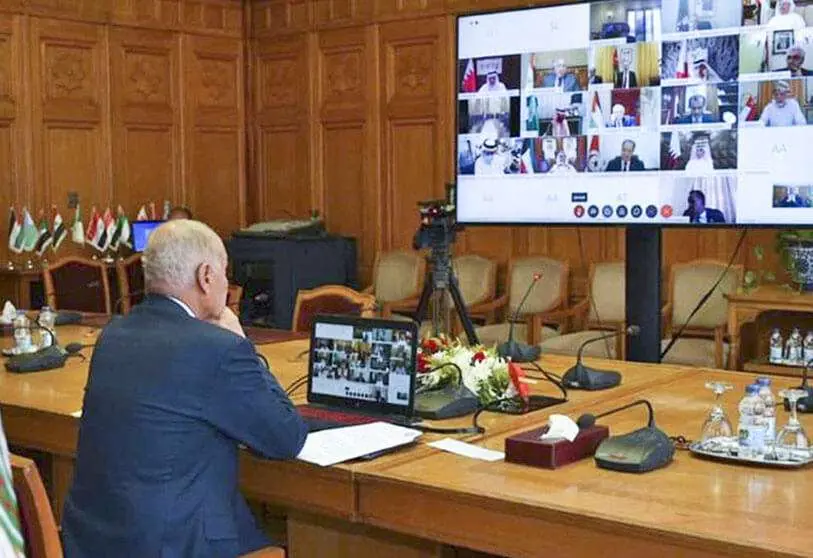
The Arab League expressed its deep opposition to Turkey's interference in the armed conflict affecting Libya, which confronts the Government of National Accord (GNA), led by Prime Minister Fayez Sarraj, and the Libyan National Army (LNA), commanded by Marshal Khalifa Haftar. The organization that brings together the different Arab nations strongly criticized the Turkish interference and the use of paid mercenaries from Syria linked to groups close to jihadist terrorism.
This statement came after The League of Arab States held a meeting, at the level of foreign ministers, through video conferencing technology on Tuesday and made it clear that foreign intervention in a conflict that has become internationalised must cease, as there are many nations involved on the ground supporting both sides.
The GNA, based in the capital of Tripoli and internationally recognized by the United Nations (UN) since 2016, is supported by Turkey, Qatar and Italy, while the LNA, which acts in alliance with the eastern executive of Tobruk, is supported by Russia, France, Egypt, Saudi Arabia and the United Arab Emirates (UAE).

In this regard, Arab League chief Ahmed Aboul Gheit presided over the meeting and expressed concern about the “internationalisation of the Libyan conflict,” the increase in “foreign military interventions in the conflict,” the “continuous violations of the arms embargo and "condemned" the “systematic recruitment of mercenaries and foreign fighters” in Libya.
In this extraordinary online meeting, held at the request of Egypt, Aboul Gheit denounced “this has made Libya, a member state of the Arab League, an arena for foreign interventions”. Because of this, Aboul Gheit also said that the Arab League is against all forms for foreign intervention in Libya and “any military solution” to the conflict. In addition, he warned that "any arrangements for a ceasefire in Libya will not succeed or endure for long unless they are accompanied by the removal of mercenaries and foreign fighters and the dismantling of militias. All of this clearly alludes to the pro-Turkish militias from Syria sent by the nation presided over by Recep Tayyip Erdogan; which harbour links with terrorist formations such as Daesh or Al-Qaeda, as various media have published; and also in reference to private military companies such as the Wagner Group, which operates in the North African country at the service of Vladimir Putin's Russia.
The different foreign powers intervening in Libya are trying to gain positions in a very interesting area due to its oil resources and its geostrategic position in the Mediterranean. In this line, the Turkish president Recep Tayyip Erdogan has been leading an international campaign for months to position himself in the Mediterranean arc and obtain economic benefits through the exploitation of gas and oil resources. Proof of this was the agreement that he signed at the end of 2019 with the prime minister of the GNA, Fayez Sarraj, by virtue of which he granted military assistance in the Libyan civil war, with the presence of the Army of the Eurasian nation and the aforementioned paid mercenaries, and by which a pact was also sealed for the distribution of exclusive economic zones, in conflict with the maritime borders of countries such as Greece and Cyprus, which issued the pertinent complaint on this matter before the international community.
At the end of the virtual meeting, the Arab Council of Ministers issued a statement in which they stressed "the rejection and necessity of preventing external interventions of any kind and source that contribute to facilitating the movement of foreign terrorist extremist fighters to Libya". They also stressed the importance of the United Nations and the international community obliging all external parties to remove mercenaries from all Libyan lands and work to unify the military and security institutions in Libya within the path of a political solution, dismantling the militias and handing over their weapons. The foreign ministers "welcomed all international initiatives, efforts and efforts of neighbouring countries aimed at stopping military operations and resuming the political process in Libya", including the recent Cairo declaration. In early June, Egyptian President Abdel Fattah al-Sisi presented a peace initiative in the Egyptian capital, in the presence of Marshal Khalifa Haftar and the Speaker of the Tobruk Parliament, Eagle Saleh, for an immediate ceasefire in Libya. From which the GNA of Sarraj dissociated itself by refusing to cease hostilities with Haftar's troops.
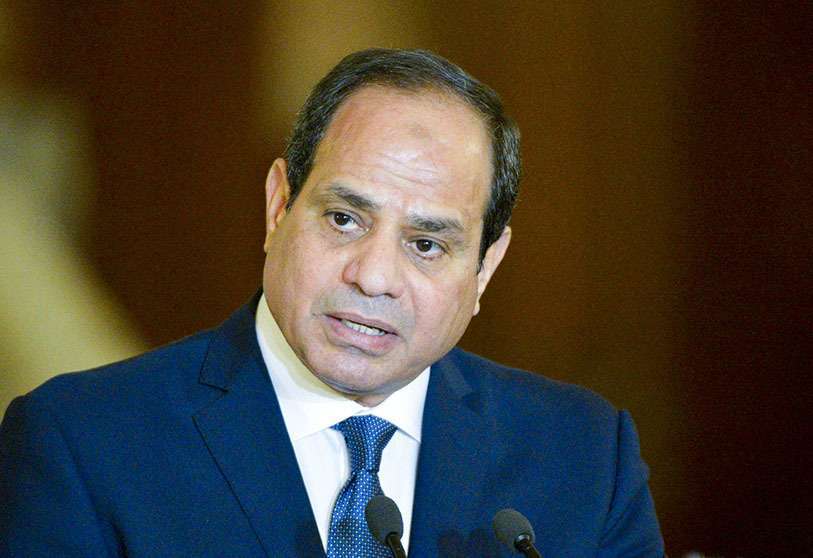
This past Saturday, Al-Sisi himself warned about a military intervention of his Armed Forces in Libya with "international legitimacy" according to the United Nations Charter, based on the right to self-defense of the States, if he saw the integrity of the North African country threatened by the warlike clash in Libya; but the Egyptian Government itself clarified that the diplomatic option remains the priority.
Egypt and the vast majority of Arab countries perceive the direct military intervention by Ankara in favour of the Tripoli government as a threat, with the sending of thousands of fighters recruited in Syria to fight alongside the forces of this side, supported by the financial muscle of Qatar. It is precisely the Gulf monarchy led by Emir Tamim bin Hamad al-Thani that is also suffering from a strong confrontation with the main nations in the Middle East region since the alliance formed by Saudi Arabia, the Emirates, Bahrain and Egypt imposed a political and economic blockade on it in 2017 after accusing the Qatari state of sustaining cross-border terrorism.
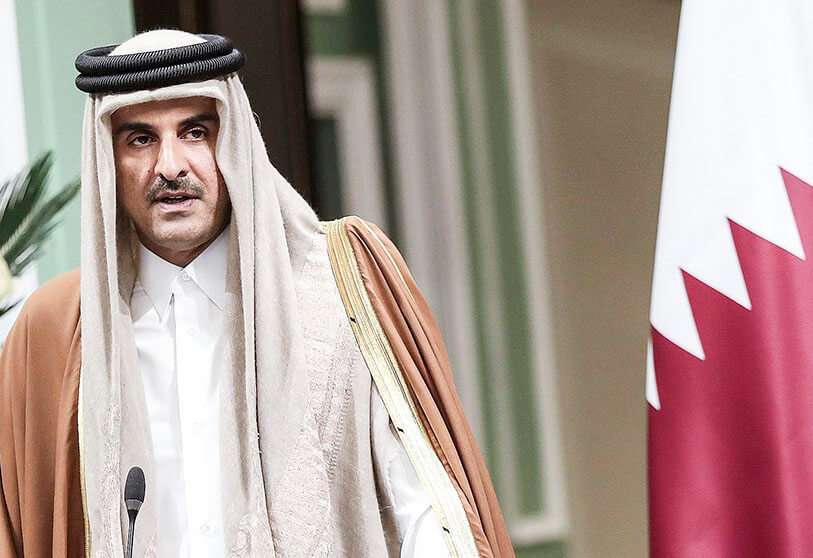
This embargo was a strong financial blow to Qatar, which resorted to seeking new allies in the international arena, in this case Turkey and the Islamic Republic of Iran. The regime of the Ayatollahs is also seen by almost the entire Arab sphere and by a large part of the international community as a distorting element that threatens security and stability in the Middle East by intervening in the internal affairs of countries such as Lebanon, Syria, Iraq or Yemen through Shiite groups based in these nations. Here lies the strong confrontation between the Shiite branch of Islam sponsored by the Persians and the Sunni branch, with the Saudi kingdom, the great rival of the Iranians in the region, being the main standard bearer.
After the announcement made by Al-Sisi about a possible Egyptian military intervention, the president of the eastern parliament of Tobruk linked to the LNA, Aguila Saleh, indicated that the Libyan population is asking Cairo to intervene with its army if required to maintain the national security of their country and Egypt. In an interview with the official Egyptian news agency, Saleh added that, should the militias and mercenaries of Turkish President Erdogan penetrate the city of Sirte, the intervention of the Egyptian Armed Forces will be requested to support the Libyan Army. In this line, Abdel Fattah al-Sisi marked the cities of Sirte and Al-Jafra as red lines, untouchable enclaves that must be respected because, if this is not the case, the Egyptian Army can be unleashed.
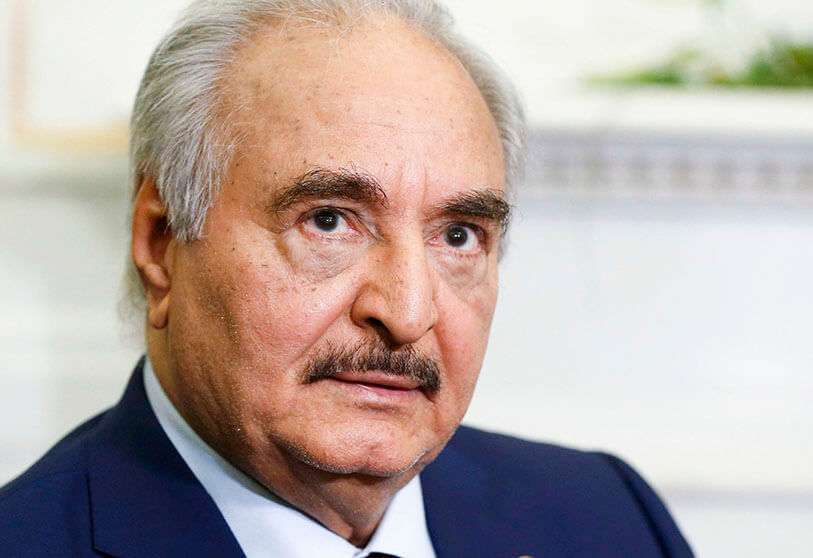
The decisions of the Arab foreign ministers on the situation in Libya therefore constituted an Arab alignment against the provisions of the Turkish regime and its president Recep Tayyip Erdogan, in a measure described by Egyptian experts as "delegitimising the Turkish intervention in Libya".
Several international analysts have indicated the relevance of this Arab League statement in terms of how the intrusion into Libya is posing a serious challenge to the Middle East and North Africa.
Analyst Abdel Kader, editor-in-chief of the Journal of Turkish Affairs, noted that "the decisions of the Arab foreign ministers confuse the Turkish regime and delegitimize it," as reported by Al-Ain News. "Of course, Erdogan was trying to change the facts as he did in Syria and Iraq. He wanted to use the same approach, which is to exploit the internal conflict to find a foothold in the Libyan scenario," the expert said.
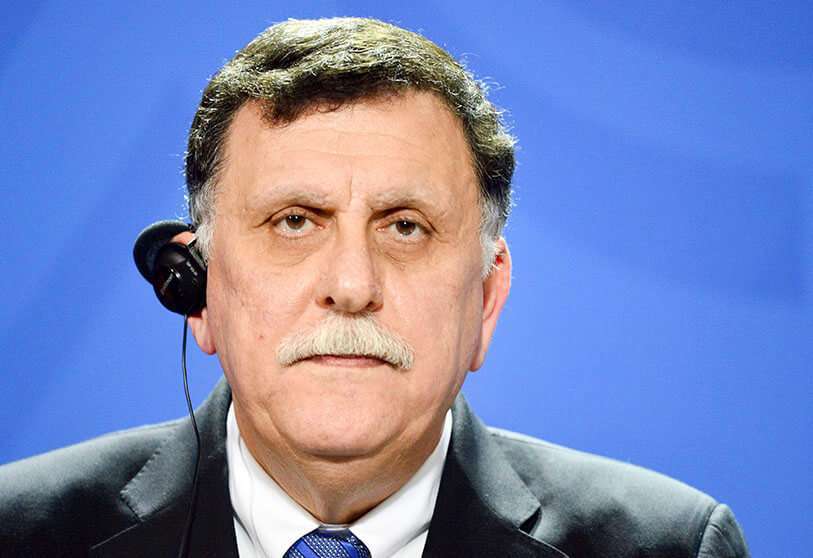
He also emphasized that "Erdogan thought he could confuse the scene in the Middle East and achieve his ambition to control oil and gas resources, whether within Libyan borders or off the Libyan coast, as well as support and mobilize terrorist groups and transport them from Syria to Libya to threaten neighboring countries, especially Egypt," he explained, but he also made it clear that the Ottoman leader was surprised by an Arab lineup that runs counter to his aspirations in the region while he suffers a notable decline in the popularity of his Justice and Development Party (AKP), which is losing political ground to the opposition, especially after the poor election results of the 2019 local elections, in which he lost power in key cities such as Istanbul and Ankara.









